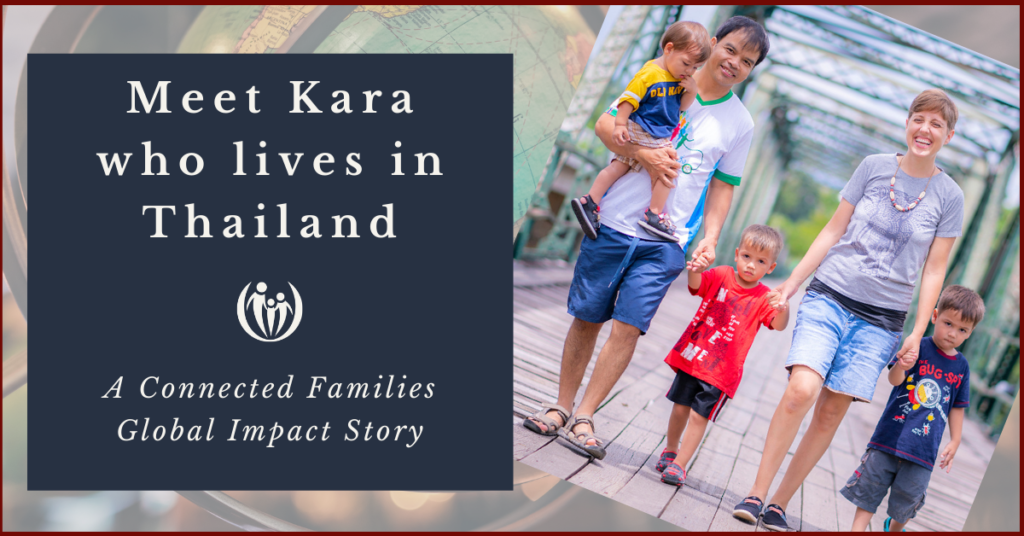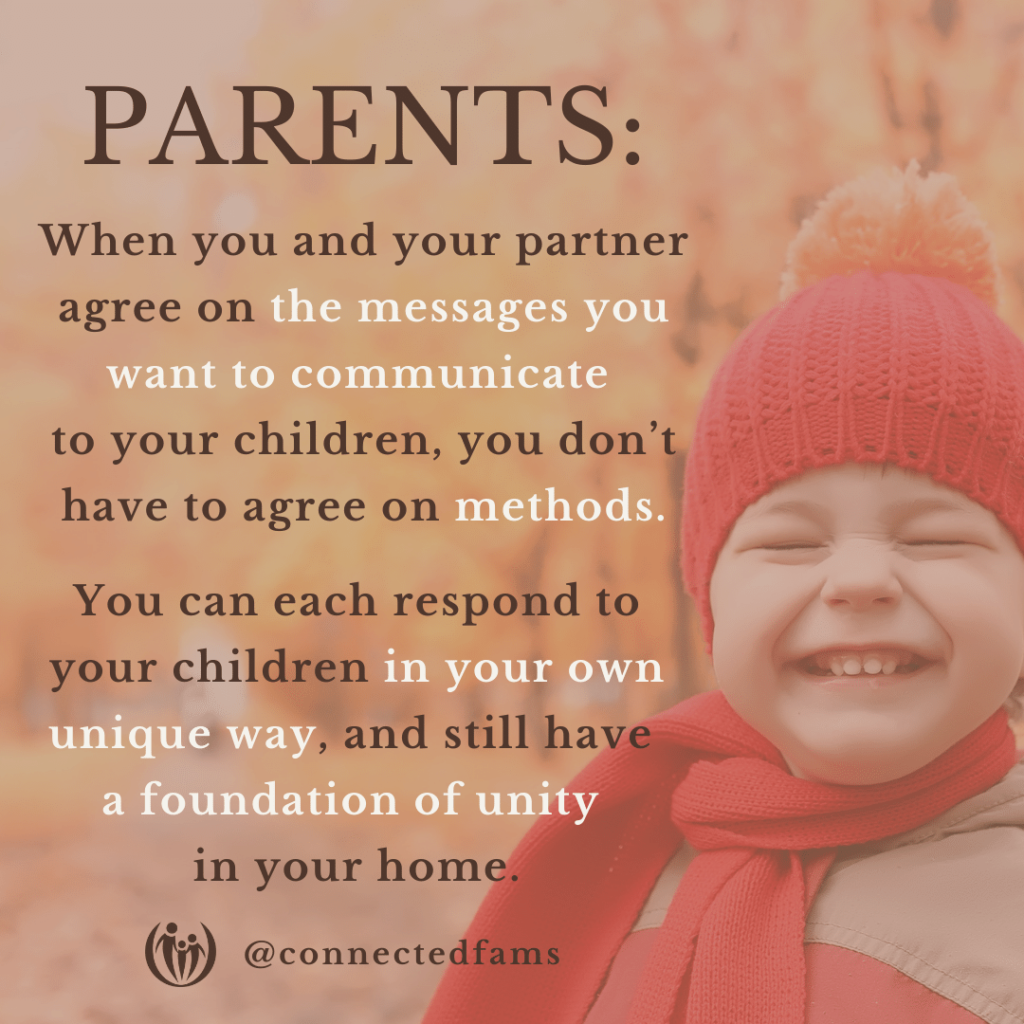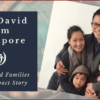
Meet Kara who Lives in Thailand

For nearly twenty years, Connected Families has been equipping and empowering parents to lead their families with grace. As a tumultuous 2020 comes to an end we are excited to introduce you to families around the world who are embracing the Connected Families Framework in their home. Connected Families is transforming, equipping, and inspiring families all over the globe!
We would love to introduce you to Kara, an American living in Thailand, with her Shan husband and three children. Kara offers us some deep insight into applying the framework in both a cross-cultural setting and a mixed culture family. After reading her story, we hope you feel as encouraged as we do to lead your family with grace!
What has been one major take-away you’ve learned and how have you applied that?
One of our children falls into dysregulation at the drop of a pin, and he’s always been prone to this. Give him a choice between a cup of water or milk? Too hard to choose, and would often end with a screaming, kicking mess on the floor.
It used to be he couldn’t recover from these sorts of choices. (Sometimes for a week or two!) Night and day. If he fell asleep during the tantrum, sometimes he’d keep on screaming (albeit more quietly) even in his dream and startle awake into a scream multiple times during the night.
Teaching him that it’s okay to make choices and that life won’t fall apart with a “bad” choice has been very hard. I’ve relied heavily on the idea that if I get nothing else right, I can at least make sure he feels safe and loved, whether or not he’s able to control himself. This wasn’t easy, especially when we were exhausted, sleep-deprived, and pretty frustrated several days into a tantrum. I would go back to Connected Families’ content repeatedly, rereading words of encouragement. I would coach him through slow breathing, big hugs, and other calming techniques. But honestly, the best we could do was hole up and not see people for days at a time until he calmed.
Do you have a story that exemplifies what you’ve learned?
There were only a few people who saw our son during one of his long, epic tantrums. Those that did had plenty of ideas and suggestions as to what we should be doing. Most of the advice centered on either ignoring or punishing him.
There were times where ignoring some screaming was (and is) a survival mechanism. Likewise, there certainly have been times where he seemed a little less out of control and a little more intentional in his tantrums, and we’ve had to adjust our responses accordingly. However, as a general rule, we could not accept the suggestions to either ignore or punish him.
For us, it took a combination of taking turns being with him, just sitting next to him or holding him (if he let us) while he continued his screams. We didn’t really “punish” him ever—though he did often feel the natural consequence of not being able to go out in public. We really internalized the Connected Families idea that when he came out of this, we wanted him confident that we were for him—on his team.

There are still hard days, but we are seeing fruit!
There has been no magic cure, and there are still some really hard days. On a plus side, most of his tantrums are under an hour long now. More telling is that the other day before school, at the potentially riskiest time of day, he wanted to go do something (I can’t remember what… maybe go ride his bicycle down the street?) that we obviously wouldn’t have time for. In the past, I had to simply tell him what he could do instead, because choices unraveled him (most kids love choices, I know).
However, this time I was able to tell him calmly he couldn’t do whatever it was and why and then offer two choices (listen to music while getting dressed or drinking some hot cocoa with his breakfast). He chose CALMLY, and even added, “Okay, Mama, I know you love me.”
To me, this example is the fruit of putting our priorities on the relationship and connection. He’s also my most “spiritually aware” child, often breaking spontaneously into prayer. I’m so glad we didn’t follow the common advice given to us that might have crushed this sweet little soul.
What is the primary culture in your family’s home life? And in your community?
We’re a mixture of Shan (my husband’s culture), American (my culture), and Thai (the outside culture). That said, our kids are English-dominant at this time. This is probably because during a child’s language development, it is usually the mother’s language which sticks first.
How does the CF framework fit within your culture?
Frankly, this continues to be complicated. However, it’s a challenge in our mixed cultural family to apply ANY parenting guidance (not just CF’s). I think it always comes with a considerable amount of self-doubt, because any “parenting agreement” we come to, regarding any particular behavior, always involves one of us agreeing to parent within the other’s cultural structures.
I love that we can take the framework, as a set of messages we want to “speak” to our children in everything we do, and it’s not a decision of what/how we’ll respond to any specific behavior. My husband and I can each apply it individually, within our own cultural reflexes, and work within that.
The downside of applying the framework in our culture is that the messages can be extremely hard to translate. More on that below.
Have you had to adjust or tweak the framework to fit your cultural context?
To be able to answer this completely, I would get a group of mixed cultures together (mixed cultural marriages are particularly helpful in this regard) and go through the content with them. But for now these insights are limited to my own family.
Here’s what had to change for my Shan husband to be able to get behind the framework. First off, “you are” statements struck him as bizarre. Why would you talk to a child individually? Aren’t you trying to help them build their identity within the family? So, all of the messages, when we say them in my husbands’ languages are “we” statements:
FOUNDATION: “You are safe.” = “We are cozy.”
The word “safe” here literally uses two words to mean “out of danger.” It refers to physical safety. There’s not a great equivalent for emotional safety, but after a while, I realized that the word my husband and others use to refer to emotionally safe people and places we would translate to cozy. We want our kids to feel that we are a “cozy” family, which still means we have to deal with all our own junk first, before we can help our kids with theirs.
CONNECT: “You are loved.” = “We love each other.”
There’s not a passive voice “loved” adjective in Thai or Shan, so we have to translate it this way.
This translation complicates things, because in the framework “You are loved” means it is WE who are loving our kids, regardless of whether they return our love. I don’t want “We love each other” to be an obligation. It’s a fact, and it’s a fact because Mom and Dad love them and each other. Their duty or obligation to return our love is not the focus.
COACH: “You are called & capable.” = “We can.” (Because God calls us.)
This translation works fine without too much fine-tuning required (again, there’s not the passive voice adjective option).
CORRECT: “You are responsible.” = “We fix our problems.”
As an American, this translation is the hardest one for me to accept. There’s not a word for “responsible” in Shan or Thai. The word typically used means to “accept fault” (and I only ever hear it when politicians adamantly dodge public accusations by claiming they are not responsible.) It’s not a good translation. So, “we fix things” is probably the right message…
That said the idea of individual responsibility is still a culturally challenging concept. My husband has been exposed to Western ideas and is more on board with teaching our kids to be responsible for the mistakes they make. However, the cultural idea is one more of collective responsibility. Parents are involved in decisions about their children’s education, careers, love life, and future kids. And children submit to parents even into old age. This also means that when a child makes a mistake, there isn’t necessarily the idea that the child should make it right. It’s more that “we should make it right” as a family or a community.
That’s neither all good nor all bad. I have seen good fruit and bad fruit from both the Western and the Eastern approach to this. Maybe due to growing up in Western culture, I do want my kids to have a sense of individually making right what they’ve made wrong. My husband too is 100% on the same page on this. However,I don’t know what this would like in the broader community. I personally struggle to distinguish the healthy and unhealthy versions of these two cultural ideas given my own cultural biases.
In your experience, what has been the value of the framework from a cultural perspective?
The focus is on the messages you send your kids, not on how you send the messages. I also appreciate taking the Bible verses associated with each message and determining how to apply that in our own cultural context. Even though we are applying the framework in both a cross-cultural setting and a mixed culture family, we have great hope that we can work within that to lead our family with grace.
Frustrated by constant discipline challenges? Take 15 minutes to read our free ebook 4 Messages All Children Long to Hear: A Discipline That Connects Overview






